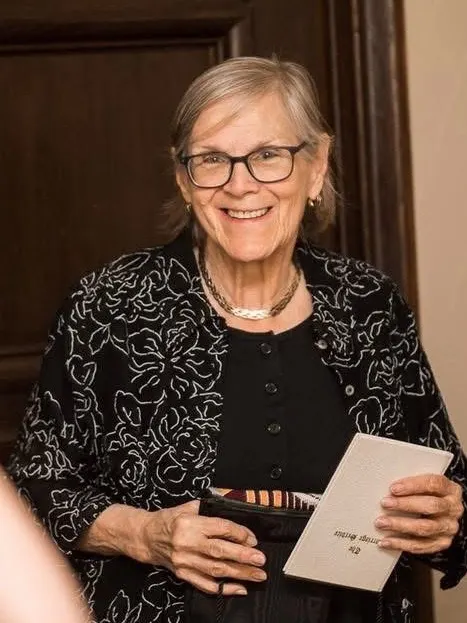By Alan Schuster
Back in the early days, operas were often written for special events, royalty ‘requests’ and the whims of the wealthy, often on short notice. Donizetti’s ‘L’Elisir d’Amore’ is a good example. In early April, 1832, a contract was signed with the impresario of a Milanese opera house to have a comedy ready for its spring season. Donizetti’s friend and partner, Felice Romani, proceeded to write the libretto in one week, and three weeks later Donizetti had completed the music. On May 12, ‘L’Elisir’ was premiered as an instantaneous success!
Milan’s Gazetta critic wrote: “The style of this score is lively, and brilliant. The shading from buffo to seria takes place with surprising gradations and the emotions are handled with musical passion. The orchestration is always brilliant and appropriate to the situation. It reveals a great master at work, accompanying a vocal line now lively, now brilliant, now impassioned.” Written 186 years ago, and it still sounds the same today!
The action takes place in an Italian farming village in the early nineteenth century. Nemorino is a poor young farm labourer in love with Adina, a wealthy landowner who seems not to reciprocate his love. When he overhears Adina recounting to her companions a confused version of the story of Tristan, Isolde and their love potion, the gullible Nemorino allows an itinerant quack, Doctor Dulcamara, to sell him an elixir (actually a cheap red wine) which, he is assured, will win Adina for him if he, Nemorino, partakes of it. But when Adina announces that she is about to marry the dashing Sergeant Belcore, Nemorino is persuaded by Dulcamara to purchase some more of the potion, which he is able to pay for only by allowing Belcore to enlist him in the army.
Meanwhile, news of the death of Nemorino’s rich uncle has reached the village. This makes his heir, Nemorino, suddenly popular with the village girls, a state of affairs which he attributes to the elixir. When Adina learns that Nemorino has enlisted in order to win her, she realizes that she really loves him. All ends happily, even for Belcore, who tells himself that there are plenty of other women in the world. Source: The Bel Canto Operas
Act I music: Early on, Nemorino expresses his love-sick feelings for Adina with a charming cavatina ‘Quanto e bella’ (How lovely she is…). Scene two begins a lengthy stretch – 15 minutes! – of comic invention with the trumpeted arrival of Dulcamara, ‘Udite, udite’ (Give me your ears), as he pitches the merits of his medicines to the villagers. Enter Nemorino: ‘Voglio dire’ (Have you the elixir that can awaken love?). This triggers a hilarious exchange between them, ending with Nemorino’s elixir in hand. The act ends with a cheery, full ensemble, guaranteed to please the ears.
Act II: Dulcamara and Adina join in a duet ‘Io son ricco…’ (I have riches, you have beauty), a tune about true love at the wedding party, which has been notably defined as “one of the most pleasing Donizetti has written in the comic vein.” Later, they come together again, this time when Adina begins to realize her love for Nemorino in a sublime melody, ‘Quanto amore’ (What affection) while Dulcamara patters on about using his ‘magic elixir.’ One more remarkable inspiration by Donizetti is Nemorino’s sentimental, two-stanza aria ‘Una furtiva lagrima’ (The furtive tear in her dark eye…), a favorite for all bel canto tenors. And then a great finale, as Dulcamara waves farewell to the assembled company in a joyful curtain closer. A few laughs and lots of smiles!
Despite all the bravos, one critic was critical. Donizetti wrote this to his librettist Romani a few days after opening night. “We have a German prima donna, a tenor who stammers, a buffo with the voice of a goat and a French basso not very much… but have courage my dear Romani.” More than a century later, opera historian Denis Forman placed L’Elisir right up there close to the Barber, calling it “a little miracle.”
The cast: Met favorite, tenor Matthew Polenzani, sings the role of Nemorino; soprano Pretty Yende is Adina; bass Ildebrando D’Arcangel, Dulcamara; and baritone Davide Luciano performs as Belcore.
Conductor Domingo Hindoyan is in the pits.
Tickets are now available. All seats are general admission. Adults $20; OLLI members $18; students $10. Order online at www.centerforthearts.com or by calling 843-521-4145. Box office opens at noon. The center is located at 801 Carteret Street in Beaufort.
IF YOU GO:
What: Donizetti’s comic opera, ‘L’Elisir d’Amore’
When: Saturday, Feb. 10, 1 p.m.
Where: USCB Center for the Arts, 801 Carteret Street, Beaufort
Tickets: Visit www.centerforthearts.com or call 843-521-4145.




